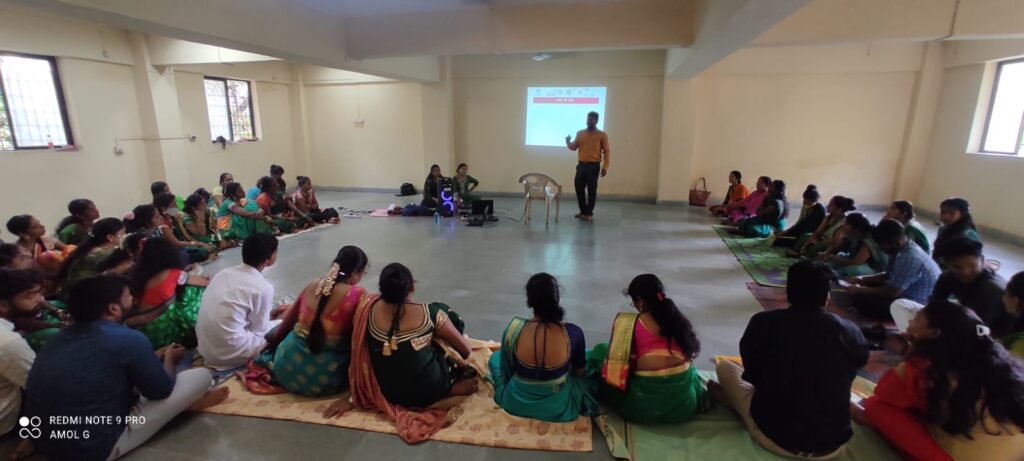Team L&M
Poddar Foundation conducted a mental health awareness session for the self-help group (Mavim) of Hal village, Raigad district in Maharashtra recently. The women of the self-help groups intervene in village communities to help fight issues like domestic violence and substance abuse and are often at their wit’s end to tackle them.
The session started with some ice-breaking activities so as to make the attendees comfortable in sharing their feelings and seek help. Various mental health issues like depression, anxiety, stress etc among women were discussed during the session.
“Mental illness is a substantial public health burden in India. Nearly 70 million people in India experience some form of mental illness, of which many have limited to no access to mental health support and treatment. Research has shown that 80 to 90 per cent of people in rural areas who require help for mental health issues remain untreated. So, the mental health gap is huge. Also, people with mental health issues often face discrimination in their communities, which can reduce willingness to seek help from mental health care providers,” says Dr Prakriti Poddar, Managing Trustee of Poddar Foundation.
“Self-help groups are a vital resource in our rural communities. Through this programme, these members would be trained on the basic principles of mental health. This would enable them to help persons under stress and facing other mental health issues. They can then make the appropriate referrals to nearby treatment centres,” she adds.
The session also talked about the coping skills, and how as community workers the self-help group can understand the difficult situations of the people of the village and help them. Some of the members of the group also shared their experiences of domestic violence and alcoholism in the village and the stigma attached to seeking help.
“In rural India, the challenges of addressing mental health issues are particularly significant. India lacks resources in the field, and most of the available resources are located in major cities or highly urban cities. People are mostly unaware of the mental health issues they are suffering from. They take it as their fate: go to religious healers or quacks – the reason why mental health issues are stigmatised. The scarcity of medical professionals and healthcare infrastructure deepens the stigma surrounding mental Health issues in villages. However, through community-based approaches with the help of self-group groups it becomes easier to unite local communities and health workers, and to end prejudices and misconceptions about mental health issues,” says Neha S Shah, Head Projects at Poddar Foundation.
